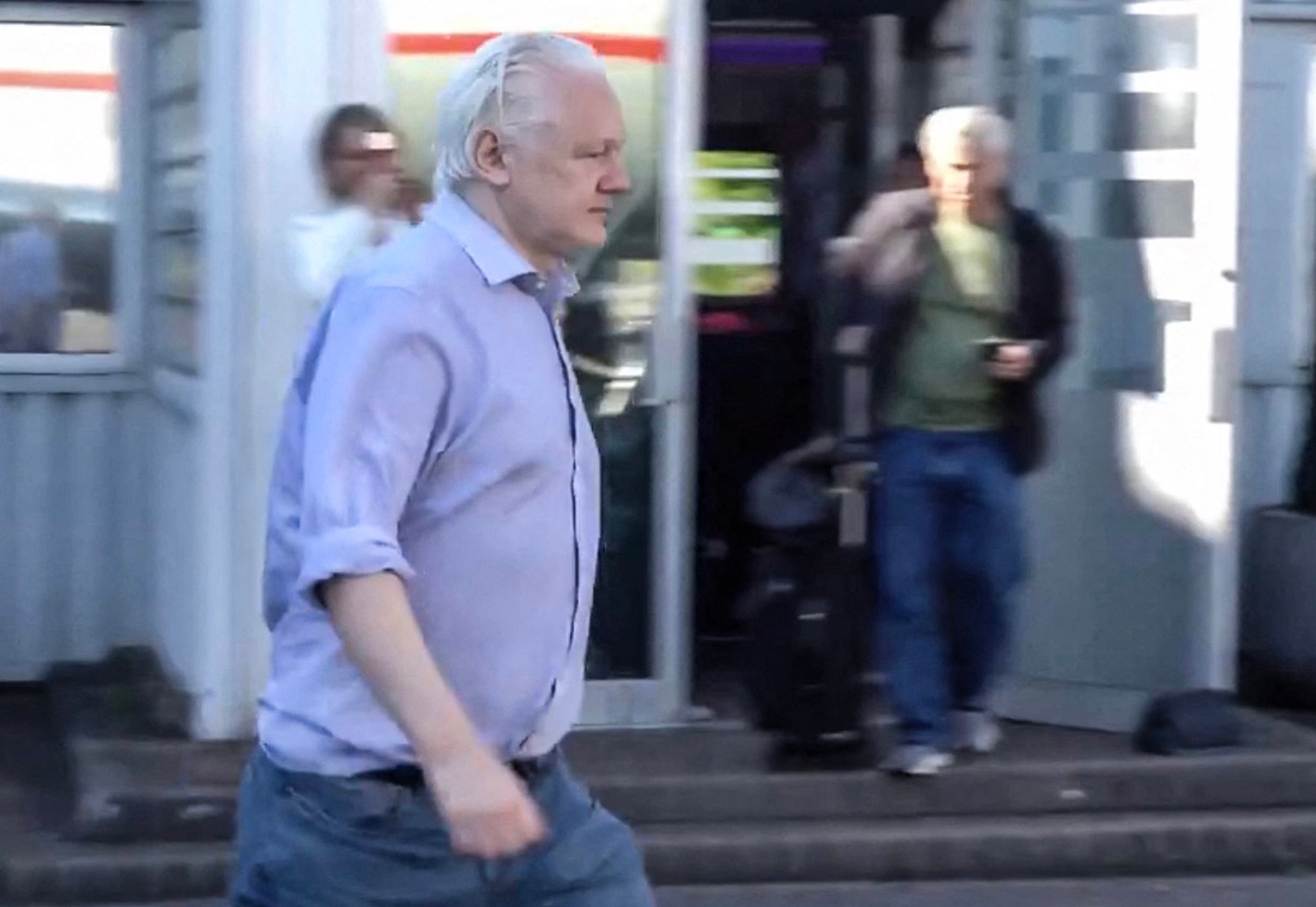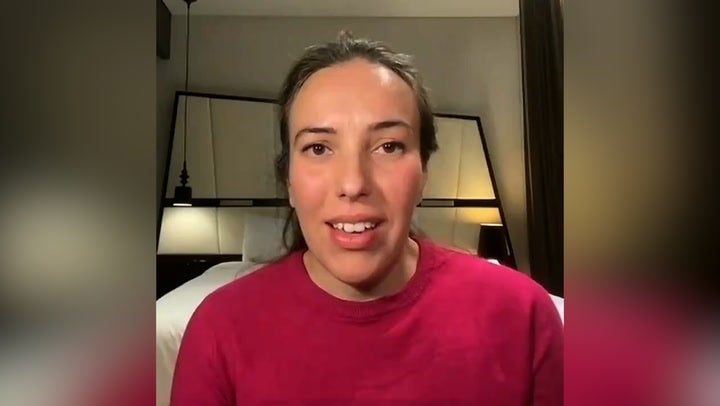Julian Assange plea deal: What happens next for the WikiLeaks founder
The WikiLeaks founder’s wife, Stella Assange, said she is looking forward to a ‘new chapter’ in Australia and wants prioritise her husband’s health
Your support helps us to tell the story
From reproductive rights to climate change to Big Tech, The Independent is on the ground when the story is developing. Whether it's investigating the financials of Elon Musk's pro-Trump PAC or producing our latest documentary, 'The A Word', which shines a light on the American women fighting for reproductive rights, we know how important it is to parse out the facts from the messaging.
At such a critical moment in US history, we need reporters on the ground. Your donation allows us to keep sending journalists to speak to both sides of the story.
The Independent is trusted by Americans across the entire political spectrum. And unlike many other quality news outlets, we choose not to lock Americans out of our reporting and analysis with paywalls. We believe quality journalism should be available to everyone, paid for by those who can afford it.
Your support makes all the difference.WikiLeaks founderJulian Assange has been released from Belmarsh Prison and has flown out of the UK after his 14-year legal battle ended in a plea deal with the US government.
Mr Assange, 52, boarded a flight from Stansted at 5pm local time and on Monday, ahead of an appearance in court on Wednesday in Saipan, a US territory that is part of the Northern Mariana Islands in the Western Pacific.
There, he is expected to plead guilty to an Espionage Act charge of conspiring to unlawfully obtain and disseminate classified US national defence information.
It followed the publication of hundreds of thousands of leaked documents relating to the Afghanistan and Iraq wars.
What happens next for the WikiLeaks founder?
Mr Assange agreed a plea deal with the US authorities, which is set to be formalised early on Wednesday. He will plead guilty to an Espionage Act charge of obtaining and disclosing information of national importance.
He will avoid being imprisoned in the US, receiving a 62-month sentence – the same amount of time he has already served in Belmarsh.

Then, it is expected he will return to his home country of Australia after his plea and sentencing, scheduled for Wednesday morning local time in the Mariana Islands, a US territory in the Western Pacific.
Stella Assange travelled on Sunday with her two young sons to Australia where the family is expected to live.
She told BBC Radio 4’s Today programme: “It has been touch and go. We were not sure until the last 24 hours that it was actually happening.
“It has been non-stop for the last 72 hours. The agreement in principle between Julian and the Department of Justice has to be signed off by a judge in Mariana. Once the judge signs it off it is finally real.”
She said she has not told sons Gabriel and Max that their father has left prison.

Ms Assange said she was looking forward to a “new chapter” with her husband and that the priority would be getting him healthy.
She said: “He’s been in a terrible state for five years. To just be in contact with nature, that’s what we both desire for now.
“And to have time and privacy and just start this new chapter.”
What has been the reaction to his plea deal?
Former Labour leader and independent parliamentary candidate Jeremy Corbyn praised Mr Assange for exposing “the crimes of the powerful” and said his imprisonment was always “a grotesque miscarriage of justice”.
He added on X, formerly Twitter: “Never stop fighting for the truth. Never lose hope. Never, ever give up.”
BBC journalist John Simpson said on X that he was “delighted” that Mr Assange is free and praised Stella Assange and the WikLeaks founder’s legal team for securing his release.
Journalist and lawyer Glenn Greenwald said: “There’s so much to say about the Assange case, the outrage of his being detained for almost 15 years, being forced to plead guilty despite committing no crime.
“But on a human and personal level, it’s beautiful to watch him leave prison a free man, and finally leave the UK.”
A spokesperson for Australian prime minister Anthony Albanese confirmed that his office was providing consular aid to Assange.
“Prime Minister Albanese has been clear – Mr Assange’s case has dragged on for too long, and there is nothing to be gained by his continued incarceration,” the spokesperson said.

Join our commenting forum
Join thought-provoking conversations, follow other Independent readers and see their replies
Comments